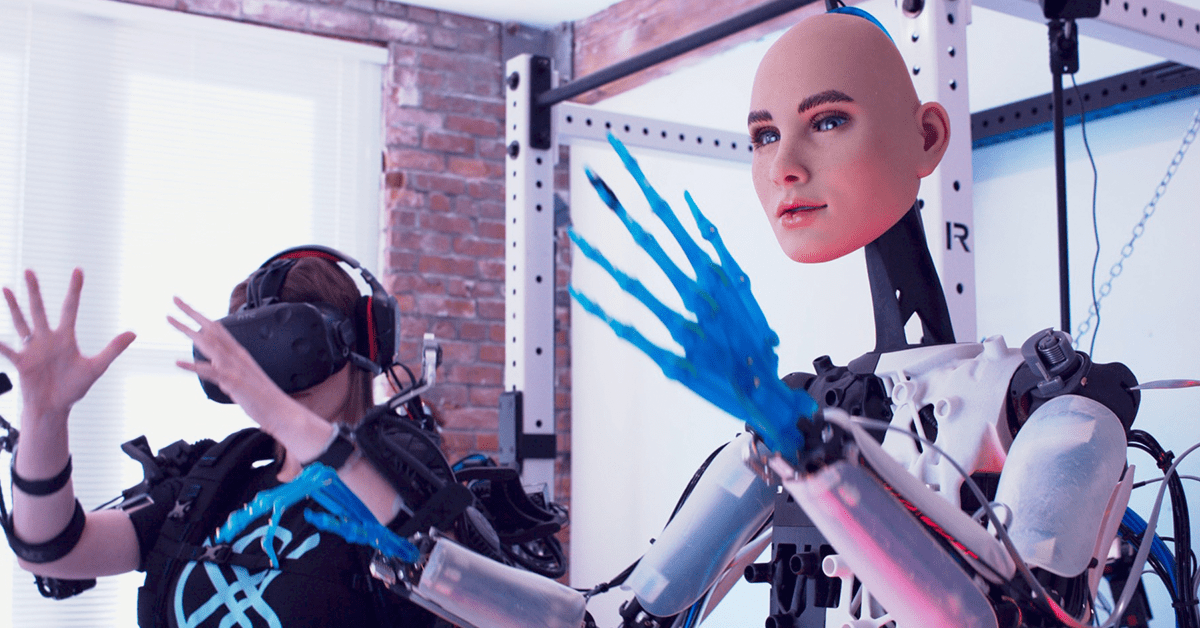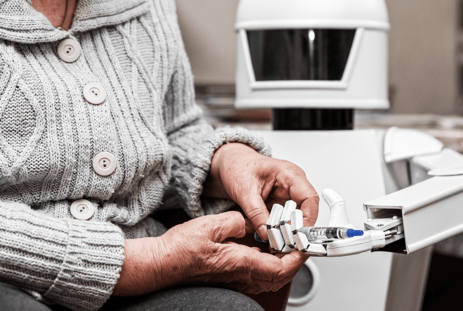
Preventing the Spread of COVID-19 in Labour-intensive Environments
AN IMPACT STORY
Working to test remotely operated robots in long-term care and clinical settings.
Working remotely has been a key tool in stopping the spread of COVID-19, but currently there is no technology that allows remote workers to participate in the economy to perform physical work.
Performing physical work remotely would not only be an economic catalyst during a pandemic, but a critical safety measure for labor-intensive environments like hospitals and long-term care homes.
That’s where Sanctuary AI and the Digital Telework Infrastructure for Remote Physical Work project come in.
Sanctuary AI’s innovative tele-robotics technology is working to bring physical capabilities to remote workers by testing remotely operated robots in long-term care and clinical settings connected to 4G and 5G networks. The initiative expands the capabilities of telework technology – currently limited to video and audio interactions – to make physical interactions possible by connecting remote workers to safe and secure general purpose robots. Combined with the support of digital medical tools such as stethoscopes and biometric monitors, this innovative technology can help prevent the spread of COVID-19 in labour-intensive environments while improving patient care and outcomes.
Supercluster co-investment made the project viable for Sanctuary AI, says James Wells, Vice-President of Corporate Development, and has spurred collaboration with several new partners. “The Supercluster’s support made it possible for the consortium members to come together in less than 30 days,” Wells notes, adding that the company expects to hire more than 10 employees as the project unfolds.”
The initiative is also laying the groundwork for a digital job infrastructure that can sustain safe and secure productivity during health crises, Wells says.
“COVID-19 has presented the world with an economic and labour challenge unprecedented in modern times. Partnering with the Supercluster and collaborating with Microsoft, Expeto, the University of British Columbia, and AInBC to build a highly innovative digital approach to job creation is a critical step in supporting Canada’s economic recovery from the COVID-19 crisis.”
The Digital Telework for Remote Physical Work project is one of eight projects announced on June 4, 2020.
View the Project
